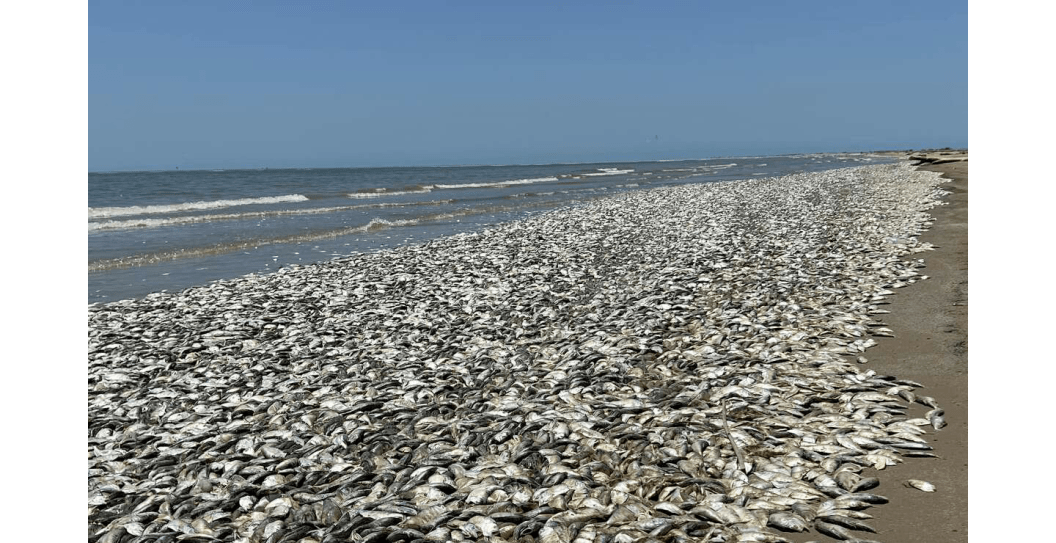You may have heard that tens of thousands of dead fish have washed up on shore in Texas—but yesterday, a nearly-identical event occurred in the United Kingdom. Why are fish dying in masses right now?
Experts say the huge fish kill is actually a natural occurrence with low water oxygen levels to blame. And in fact, similar things have happened in the past in North Carolina and Lake Michigan.
In the United States, the Texas Parks & Wildlife Kills and Spills Team said low dissolved oxygen levels could have resulted from photosynthesis and aerobic respiration.
Water samples were taken from the Gulf Intracoastal Canal and the Brazos River, both of which feed into the coast. Those samples were found to have almost no dissolved oxygen in them, local officials said.
"Increased dissolved oxygen during the day is a result of photosynthesis which is driven by sunlight," the agency said in a press release. "Photosynthesis stops at night and may slow down on cloudy days, but plants and animals in the water continue to respire and consume free oxygen, decreasing the dissolved oxygen concentration...Often before a kill event occurs, fish can be seen trying to get oxygen by gulping at the surface of the water early in the morning."
Darrell Schoppe was one of the first on the beach near Freeport, Texas where the fish corpses lined the beach for roughly seven miles.
"That's all I could do at that point because I was just kind of in awe," Schoppe told The Washington Post. "Of course I wasn't going to go wait out there to try to catch any trout; everything was pretty much dead."
The U.K.'s Environment Agency said there had been a significant number of fish deaths and incidents of fish in distress believed to be linked to low oxygen levels as a result of high temperatures and low pressure caused by thunderstorms. Carl Hughes, an environmental scientist in the U.K., called it a perfect storm.
"Due to the thunderstorms, we have quite low pressure systems at the moment and a lot of the oxygen that tends to be within the water - that dissolves in the water - is lost," he told BBC. "So when you get these low pressure systems, and it's really high temperatures in the water and in the air, the oxygen is less likely to stay in the water and you can get really low oxygen concentrations."




